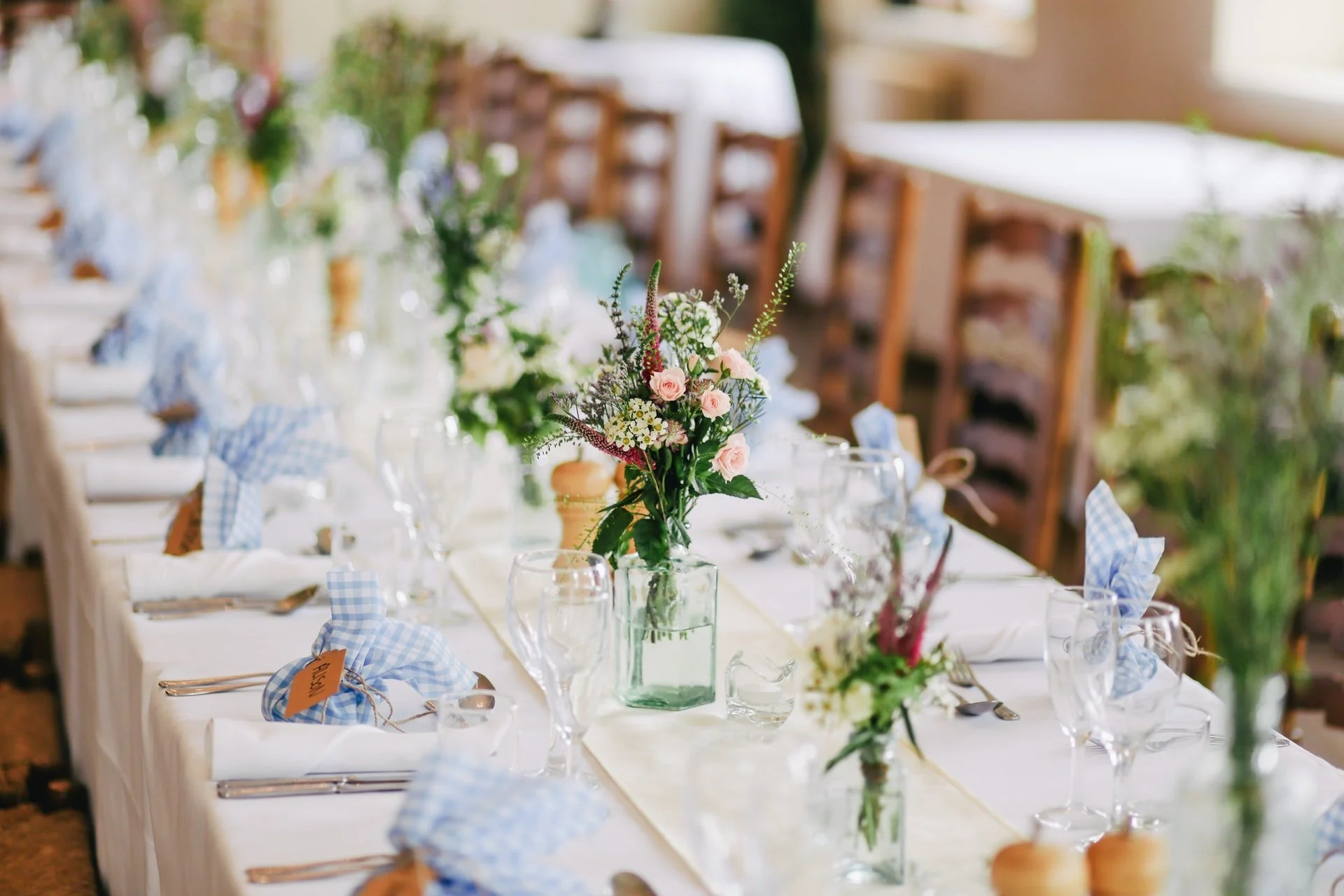How to Secure the Wedding Venue of Your Dreams
Guest post written by Katie Tejada
Unsplash
In a typical year, there are approximately 2.4 million weddings performed in the U.S. That’s over 46,000 weddings every week, or more precisely, every weekend. Whether planning your own wedding or planning for a client, you had better put a deposit down on that ideal venue right away. First come, first served. You need to secure your venue as expeditiously as possible.
If we haven’t met yet, hi! I’m Lindsey Nickel and I’m a local Napa wedding planner and the owner of Lovely Day Events. My team and I have planned more than 140 destination weddings, so I can tell you firsthand that wine country weddings are something special. My clients want the ceremony to be outside, the food to be outstanding, and the dance parties to be epic. If this sounds like you, you’re in the right place.
First Recommendation — Hire a Wedding Planner
In 2021, average wedding costs were over $20,000 with a typical guest-list approaching 70
attendees. In California, the figure is significantly higher at $26,000, with the cost per guest nearly $400. Remember, these are mean figures—the mid-range—rather than exceptional. If you want to create the wedding of your dreams and you or your intended aren’t professional wedding or event planners yourselves, then you would be wise to hire one. There’s no point investing significant money in your big day only to be disappointed by the end result. Hiring a professional is the best way to ensure that money is well spent and potentially expensive surprises are eliminated, or at least kept to a minimum.
Unsplash
Include Nature in your Wedding
It’s no surprise that many people have gravitated towards outdoor weddings. It’s the safest way to celebrate with a large group of people at the moment, and therefore embracing the natural aesthetic is popular right now. This means lots of neutral hues, like nudes, tans, and greys, as well as incorporating leaves and branches, and other elements from natural surroundings that stick out to you. If it gets chilly at night, you can decorate the space with rustic-looking fireplaces to keep your guests warm and cozy.
Consider A Wedding Designer
Great wedding planners aren’t simply experts in planning and event management. They can act as event designers that bring a wedding to life in a way that reflects a client’s values, aesthetics, and personal story. They ensure the quality of the wedding experience, reduce stress, manage logistics, maximize the value of the client’s dollar, and provide valuable resources. They can also help connect you with creative wedding and reception concepts, venues, florists, stylists, designers, equipment and supply rental companies, stationers, and caterers, along with musical acts and other entertainers.
Unsplash
The First Step in Deciding On a Wedding Venue: Priorities
First, determine priorities. Does the venue selection take precedence over when you want or need to get married? In other words, are you willing to wait — perhaps for quite a while — for that Georgian mansion with the rose garden? Or are the venue and timing linked? (for instance an outdoor wedding at a farm that cannot take place during the winter). Are there family or other considerations that make setting the date paramount? Is the priority a large guest list of friends and extended family, or an intimate, upscale experience? Or is this an upmarket event with a large number of guests expected? Is this a destination wedding?
There are also the needs of attendees to consider. Will they need hotel accommodations and will they expect you to help them make arrangements? Are there elderly or disabled persons who require special accommodations? What about kids?
Getting clear about these priorities will help you sort through trade-offs and get to a shortlist of venue options.
Wedding Budget and Invitation List
One of the most important things a planner can do is help the client come to a realistic balance between the size of the invitation list and the features of the experience. A professional wedding planner not only has a comprehensive wedding checklist but also an established list of expense categories and a spreadsheet designed to take the client’s budget and divide it up proportionately.
As you examine your budget, you might find that some elements either get left by the wayside or scaled back. Maybe that pony ride for the children in attendance isn’t absolutely necessary. Maybe the wedding favors turn out to be less expensive or elaborate. Or, after consultation, and for those for whom price is less of an object, there may be a decision to increase the budget in order to accommodate both needs and wants. Regardless, you’ll have a good idea up-front of what’s feasible given your initial budget parameters.
Planning for Contingencies
As you would with any elaborate plan, build in a safety net for contingencies. While contingencies can be as low as five percent, the standard rule of thumb in the industry is 15 to 20 percent. When you think about it, a five percent contingency doesn’t provide much room for error or last-minute changes, which could be significant depending upon the size of the wedding.
Enjoy the Wedding Planning Process
The stresses of getting married are legendary. Throughout the process, make certain to slow down, relax, and enjoy the experience of designing a dream wedding. Events created with love and joy never fail to show the quality of their main ingredient.
Katie Tejada is a writer, editor, and former HR professional. She often covers developments in HR, business, recruiting, real estate, law and finance, but also enjoys writing about travel, interiors and events.




